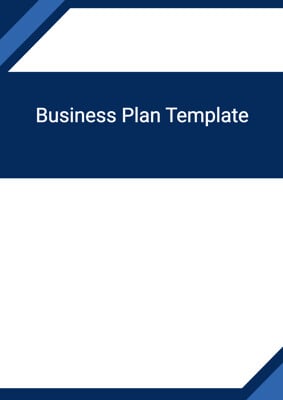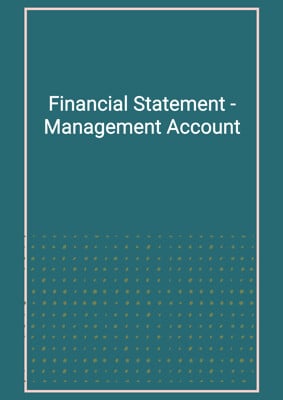
Foreign Investment Feasibility Study
For Government in New Country
This document is a template for a form of a feasibility study for a foreign investor setting up a new company and making an investment in a new country. It covers the description of the types of the company, the purpose, scope and scale of operations, the financial arrangement, management and etc.
How to Tailor the Document for Your Need?
01
Create Document
Click "Create Document" button and the document will be prepared with your account details automatically filled in.
02
Fill Information
Please fill in any additional information by following the step-by-step guide on the left hand side of the preview document and click the "Next" button.
03
Get Document
When you are done, click the "Get Document" button and you can download the document in Word or PDF format.
04
Review Document
Please review the document carefully and make any final modifications to ensure that the details are correct before publication / distribution.
Document Preview
Document Description
The Foreign Investment Feasibility Study is a comprehensive report that aims to study and demonstrate the feasibility of establishing a wholly owned company in a specific territory. The document provides a detailed introduction to the project, including the background of the company and its achievements in the market. It also highlights the importance of the territory as an investment partner and the company's plans to prioritize it for capital investment in the Asian region.
The document includes definitions of key terms used throughout the report, such as the board of directors and the company's parent. It describes the company's name, legal address, and form as a foreign-owned limited liability company in the territory. The report also provides information about the company's parent, including its legal address and representative.
The purpose, scope, and scale of operations are thoroughly explained in the document. The purpose of forming the company is to strengthen economic and technological cooperation by utilizing the company's parent's advanced technological process. The report outlines the business scope of the company, which includes various activities contributing to the growth of the territory's economy. The estimated scale of operations and the potential for future expansion are also discussed.
The document provides detailed information about the total investment and capital contributions. It specifies the total investment amount and the registered capital contributed by the company's parent. It also mentions the possibility of debt financing and the permitted debt-to-equity ratio.
The organization, management, and personnel structure of the company are described in detail. The document explains the role of the board of directors and the appointment of a general manager and other senior managers. It also mentions the initial number of employees that will be hired by the company.
The production technology and manufacturing equipment are discussed, including the source of the company's technology and the scope and scale of production. The document analyzes the demand and market channels for the company's products and provides a list of equipment to be purchased.
The rights to the site and buildings are addressed, including the ownership or lease of the land and premises. The document also mentions any mining rights, right to water, and easements that the company will obtain or lease.
The document includes information about the required raw materials and utilities for the company's operations. It estimates the electricity, water, and steam usage, as well as the source of raw materials.
The environmental impact of the project is thoroughly assessed. The document discusses the waste products generated during the production process and the methods for controlling and treating them. It also mentions the treatment of waste liquids and the measures taken to prevent pollution.
The forecast of market demand and pricing is provided, including the estimated market demand for the company's products and the proposed pricing.
The document concludes with an economic analysis for the first years of the project, including estimated income statements, cash flow projections, balance sheets, and debt repayment schedules. The company's parent expects the company to start earning positive net profits in a specific year.
The feasibility study report is submitted to the approval authority for examination and approval, and the company looks forward to receiving approval as early as possible.
How to use this document?
1. Conduct a thorough analysis of the feasibility study report to understand the importance of the document in assessing the viability of establishing a wholly owned company in a specific territory.
2. Familiarize yourself with the detailed introduction provided in the document, which includes the background of the project and the company's achievements in the market.
3. Pay close attention to the sections that provide a detailed description of the company, including its name, legal address, and form as a foreign-owned limited liability company.
4. Understand the purpose, scope, and scale of operations outlined in the document, which highlight the company's goals and its contribution to the growth of the territory's economy.
5. Analyze the information related to the total investment and capital contributions, including the total investment amount, registered capital, and the possibility of debt financing.
6. Take note of the organization, management, and personnel structure of the company, including the role of the board of directors, the appointment of a general manager, and the initial number of employees.
7. Evaluate the production technology and manufacturing equipment described in the document, including the source of the company's technology and the market demand for its products.
8. Understand the rights to the site and buildings, whether they are owned or leased by the company, and any additional rights or easements obtained.
9. Review the information about the required raw materials and utilities for the company's operations, including electricity, water, and raw material sources.
10. Assess the environmental impact of the project and the measures taken to control and treat waste products within legal limits.
11. Consider the forecast of market demand and pricing provided in the document to evaluate the potential profitability of the company.
12. Study the economic analysis for the first years of the project, including income statements, cash flow projections, balance sheets, and debt repayment schedules.
13. Understand the process of submitting the feasibility study report to the approval authority for examination and approval, and the expectations for receiving approval in a timely manner.
Not the right document?
Don’t worry, we have thousands of documents for you to choose from:













